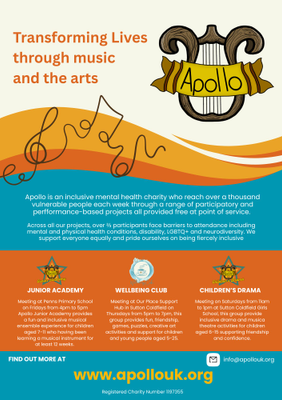The start of EAL provision in England can be traced back to 1966, when Section 11 of the Local Government Act made funds available to meet the needs of people of Commonwealth origin. This was known as ‘Section 11 funding’ and was used to support the education of learners who used English as an Additional Language (EAL). In the beginning much of this support took place in separate language centres or through withdrawal of learners using EAL from mainstream classes. In 1986, a Commission for Racial Equality report into provision in Calderdale Local Education Authority found this practice to be discriminatory and this led to the closure of language units. Funding for language support was subsequently used to provide additional specialist staff to work in mainstream classrooms.
How do we support our learners at Penns?
Upon arrival our pupils will complete a 'child-friendly' interview and initial assessment which determines the level of support required. Alongside this, we use an EAL assessment framework from The Bell Foundation (www.bell-foundation.org.uk) which we use due to its classroom-friendly, curriculum-language integrated approach allowing for informal yet more formal summative assessment. Children will also work within a programme called, 'Racing to English' and/or Flash Academy depending on the level of need. We are an inclusive school and feel strongly that pupils who are new to the country are completely immersed within the classroom to enable full exposure to the English language. In most cases, the pupils will receive additional support in order for them to focus on their English language work.
-
Visual Supports
-
Use images, diagrams, symbols, and real objects to aid understanding.
-
Display visual timetables and key vocabulary with pictures.
-
-
Scaffolded Language Support
-
Break down instructions into manageable steps.
-
Use sentence starters, word banks, and writing frames.
-
-
Buddy Systems
-
Pair EAL learners with supportive peers who can help model language and routines.
-
-
Pre-teaching Vocabulary
-
Introduce key topic vocabulary before lessons so learners can access the content more easily.
-
-
Use of Home Language
-
Encourage learners to use their first language for understanding and building confidence.
-
Welcome home language books, labels, or dual-language resources.
-
-
Language-Rich Environment
-
Create classrooms where spoken and written language is everywhere: displays, word walls, and labelled items.
-
-
Small Group or 1:1 Support
-
Provide targeted intervention to develop speaking, listening, reading, and writing skills.
-
-
Interactive Learning
-
Use games, drama, role-play, and practical activities to make language learning fun and engaging.
-
-
Repetition and Modelling
-
Repeat key phrases and model correct language structures regularly.
-
-
Celebrating Cultural Diversity
-
Include books, topics, and celebrations from a variety of cultures to help EAL learners feel valued and included.
-
Staff CPD and Training
-
Ensure all staff have ongoing training in EAL strategies and inclusive practice.
-
Regular Assessment and Tracking
-
Monitor progress in both English language development and curriculum access to inform next steps.
Please click here to read our EAL overview
How do we support parents?
Parents are able to access information easily via the translation tool on our classdojo platform and we will happily ensure use of an interpreter if need be. We ensure an open culture so parents feel connected to school and feel a sense of belonging.
.









